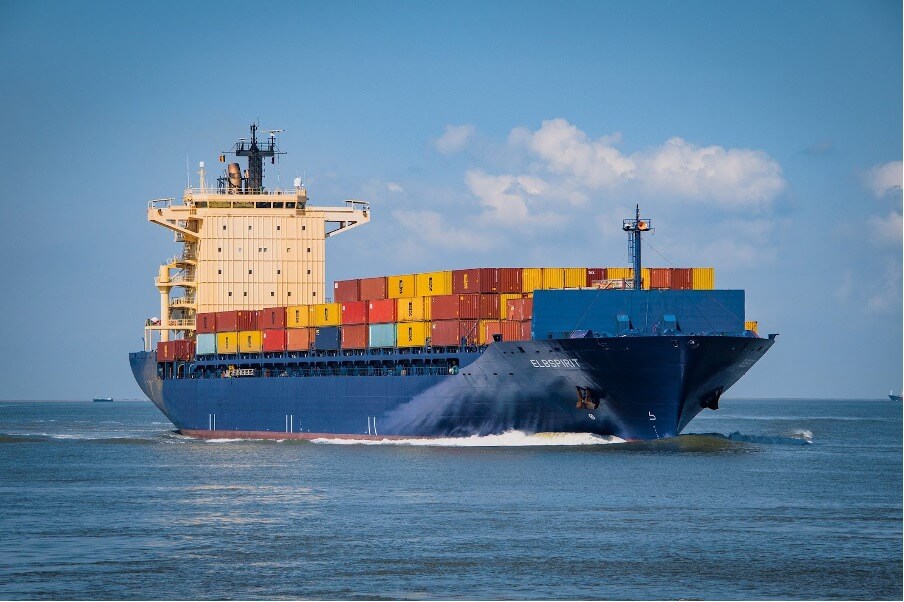Since the pandemic began rumbling through businesses in 2020, its impact has been felt globally.
Whether or not your
business is involved in shipping and transport, those affected at all by supply chain interruptions have been feeling its sometimes crippling effects.
Although cases of COVID-19 are becoming less prevalent, some correspondents predict that the effects will likely continue. So what does this mean for your business?
The shipping crisis could see supply and demand problems, delays in shipping, disruption to
manufacturing and the flow of goods, resulting in hiked prices and loss of profit. Businesses can mitigate risk by building a robust risk management strategy and obtaining professional advice to understand the supply chain risks they face.
Supply, Demand and Logistics
The pandemic has been instrumental in increasing online transactions, which are growing steadily each year. Lockdowns and other restrictions mean that shopping from home has hugely increased.
Many companies have faced an upturn in demand and struggled to meet the increase in orders. With the initial restrictions coming from China, many companies of all kinds made snap decisions to lay off staff, decrease production, and in some cases, shut their premises entirely.
However, with China the first to return to business as usual, this rebound was instrumental in the bottleneck. This development caused the shipping chaos as goods made their way from reopened trade ports to those virtually stagnant in the U.S.
Without sufficient workers in the Integral U.S. ports, the result was unmet labour demand and widespread shortages.
Not to mention the shortage of essential technology parts that most businesses rely on, such as computer hardware, with lengthy wait times causing loss of profit and production in many industries.
The issues in availability and timescales for delivery have meant many Australian businesses are hiking up prices or, in many cases, are forced to close plants, fire staff and reduce production.
Shipping Delays
The recent world pandemic means The Australian Shipping industry is currently facing one of the most unprecedented challenges of its entire history.
With freight prices going through the roof and shipping container congestion, multiple nations have experienced transport issues and shipping delays unlike ever before.
Management Liability insurance is designed to provide protection to both the business and its directors or officers for claims of wrongful acts in the management of the business.
A business insurance pack can provide cover for your business premises and contents, against loss, damage, theft or financial loss from an insured interruption to the business.
Purchase up to six products under one Business Insurance Package.
With freight prices going through the roof and shipping container congestion, multiple nations have experienced transport issues and shipping delays unlike ever before.
With over-hiked freight prices, delays and congestion, the industry has recently been almost bought to its knees.
David Leaney, a prominent supply chain lecturer, predicts that customers could be in for a long wait for many goods, especially electronics and new cars, which could see deliveries delayed for up to one year.
Increase in Consumer Demand vs Supply?
With a staggering US$14 billion netted for the top ten online Australian stores in 2020, it's clear that the pandemic has sent consumer demand through the roof.
With travel and eating out taking a hit due to pandemic restrictions, retail sales grew as shoppers were encouraged to make online purchases.
Just in time
A concept created by Japanese manufacturing giants in the 1950s, ‘just-in-time', is a method by which companies don’t keep many raw materials in stock but simply order them as and when required.
The end goal means consumers still receive their goods on time.
This method proved challenging during the spike in consumer demand during the pandemic.
This was because many companies failed to predict the massive increase in orders. They assumed demand would drop due to lockdown restrictions, such as warehouses and other retail outlets shutting their doors and laying off staff.
Congestion at ports due to the vast increase in demand created a shipping bottleneck between Asia and the U.S, leading to unprecedented congestion at American Ports.
During the pandemic, 100 vessels were gridlocked, waiting to dock and unload goods in Los Angeles.
What Does it Mean for Your Business?
As risk experts at
Insurance Advisernet, we understand the implications of this unprecedented supply chain chaos.
With multiple international lockdowns, The COVID-19 pandemic has contributed significantly to supply chains in Australia and globally.
A halt in the steady flow of raw materials, electronics and other goods, even if you are not directly involved in shipping or transport, will drastically affect many end users.
Multiple national lockdowns that continue to slow or even temporarily stop the flow of raw materials and finished goods are disrupting manufacturing and many other types of business.
Staff shortages and other losses due to the COVID-19 pandemic have contributed to a series of unforeseen challenges. And has also thrown a spotlight on any previously unrecognised vulnerabilities.
Supply chain management is critical
With multiple links in the supply chain; businesses must look to create a management strategy. This is especially important in light of the recent events causing global disruption.
If any links are required for your business break, it can be extremely costly in both time and profits.
Business Risk Management
To develop the best supply chain risk strategy, it’s crucial that you first understand any risks involved.
Those Australian companies with a robust business risk management strategy can take advantage of any tried and tested risk procedures, which will help combat unforeseen business issues.
Those who can mitigate risk by implementing strong business insurance coverage will be able to emerge from any situation, such as the supply chain crisis, prepared and ready for their next goals.
Make sure your team is risk-aware by building it into the fabric of your business culture and make sure your entire workforce is ready by getting them involved in risk awareness training.
Here are five steps to mitigate against further supply chain disruption:
- Take any necessary preventive measures, including Business interruption insurance which can help your business mitigate against a wealth of unforeseen circumstances;
- Prepare and implement emergency contingency plans;
- Put the plan into practice; and
- Resume normal operations as soon as you can to business as usual.
Talk To An Adviser Today
With over 25 years of supporting Australian businesses, we pride ourselves on the delivery of insurance solutions bespoke to your needs.
Offering expert advice and tailored systems, our ongoing commitment means customer satisfaction is continually over 95%.
Built on our four core business pillars of trust, advice, choice and value, we can offer your business a service to help your company mitigate risks, including supply chain disruption.
Click
here to find your local insurance adviser today.







